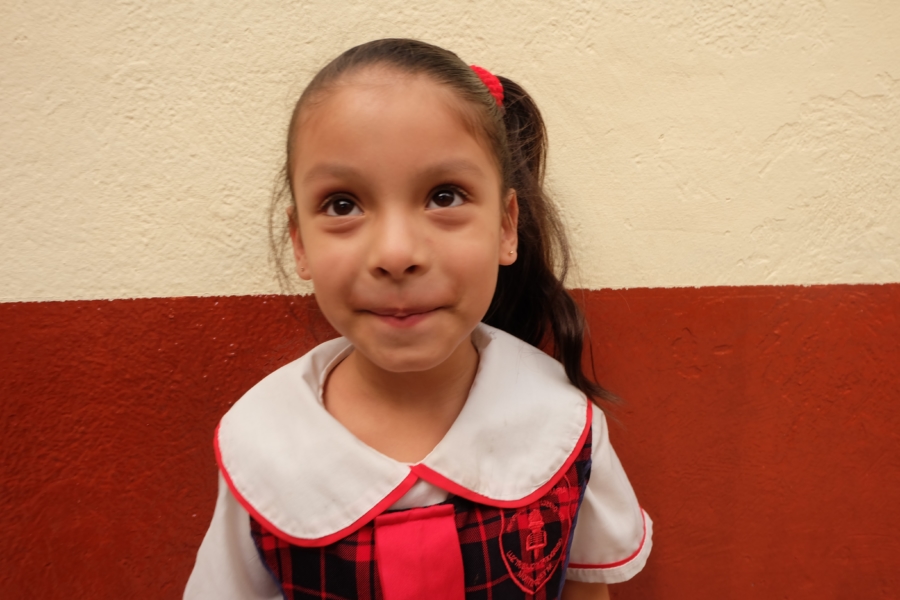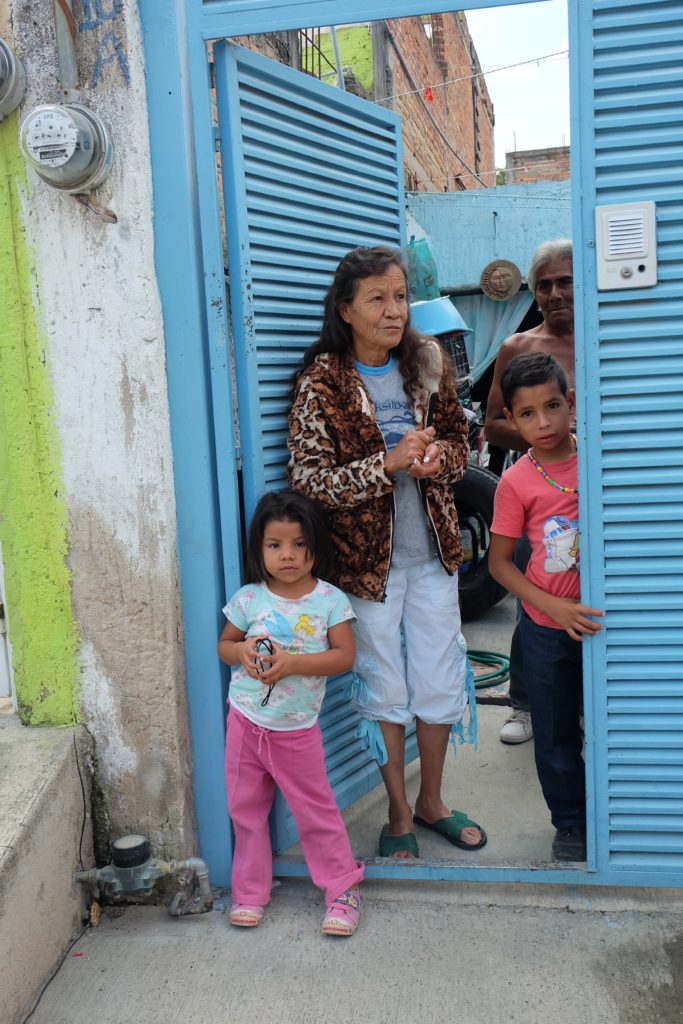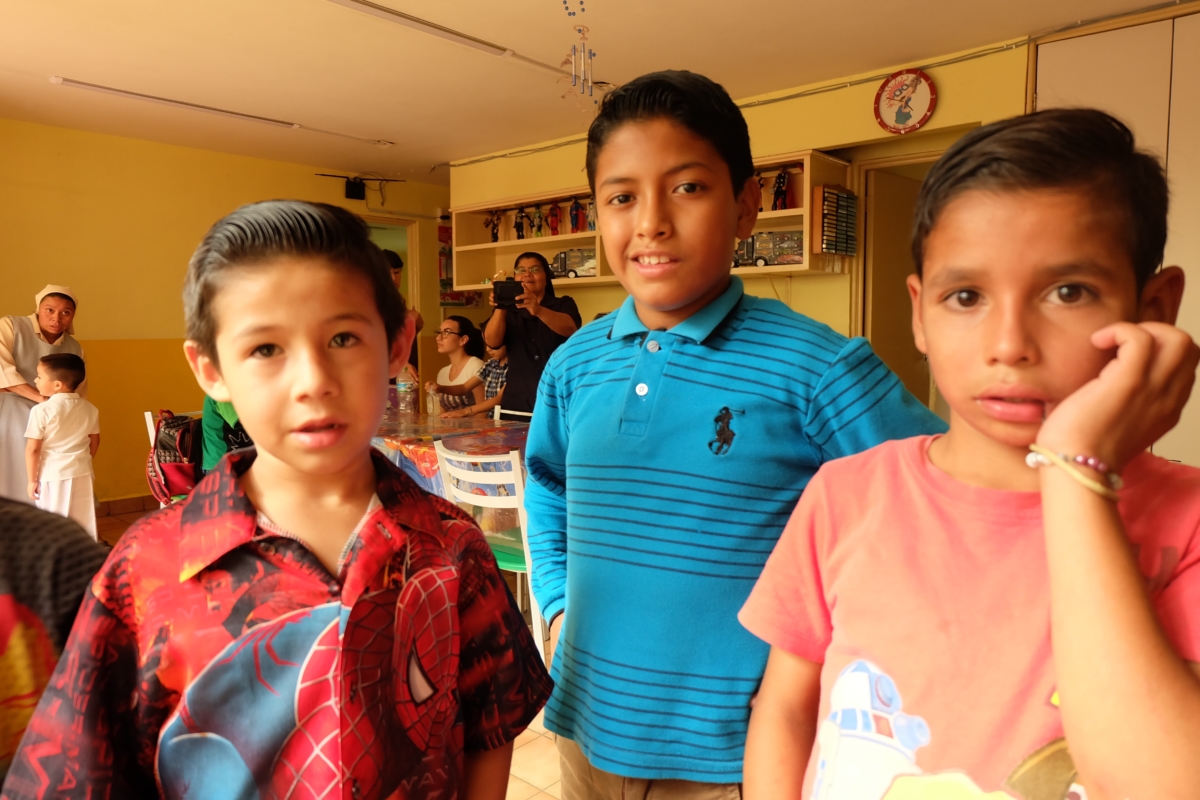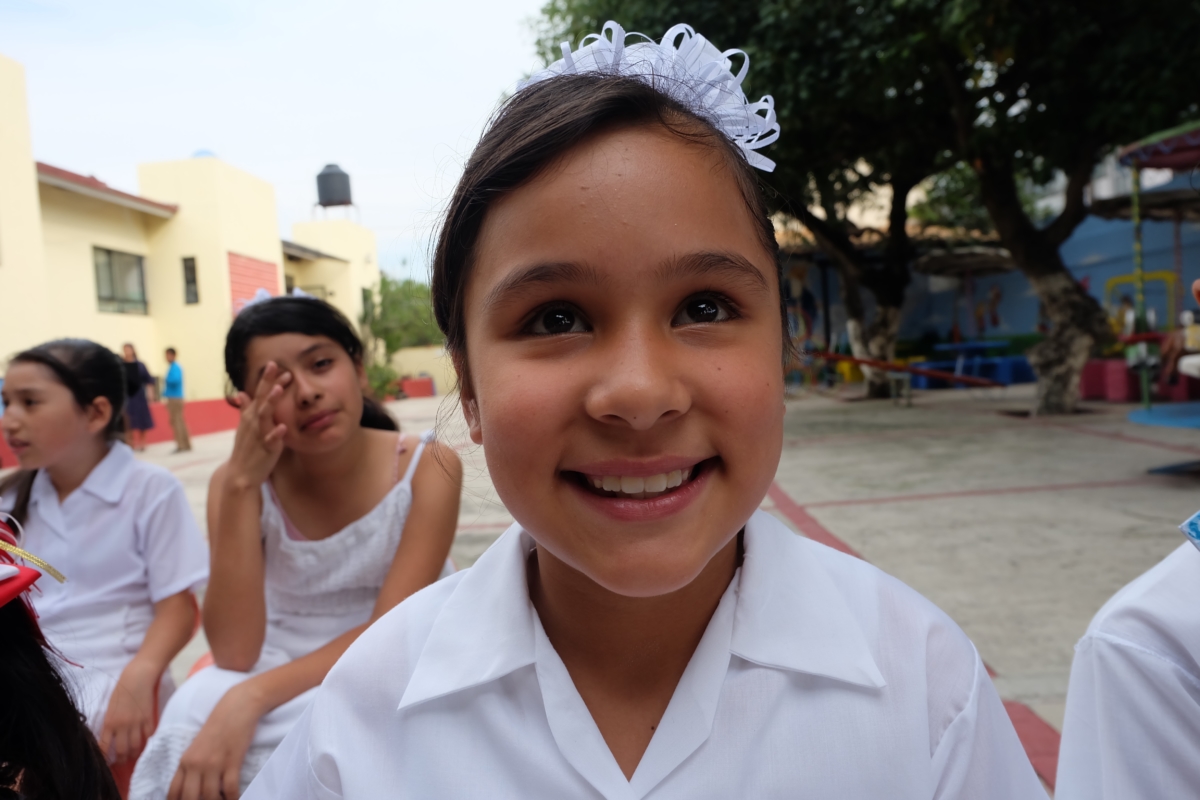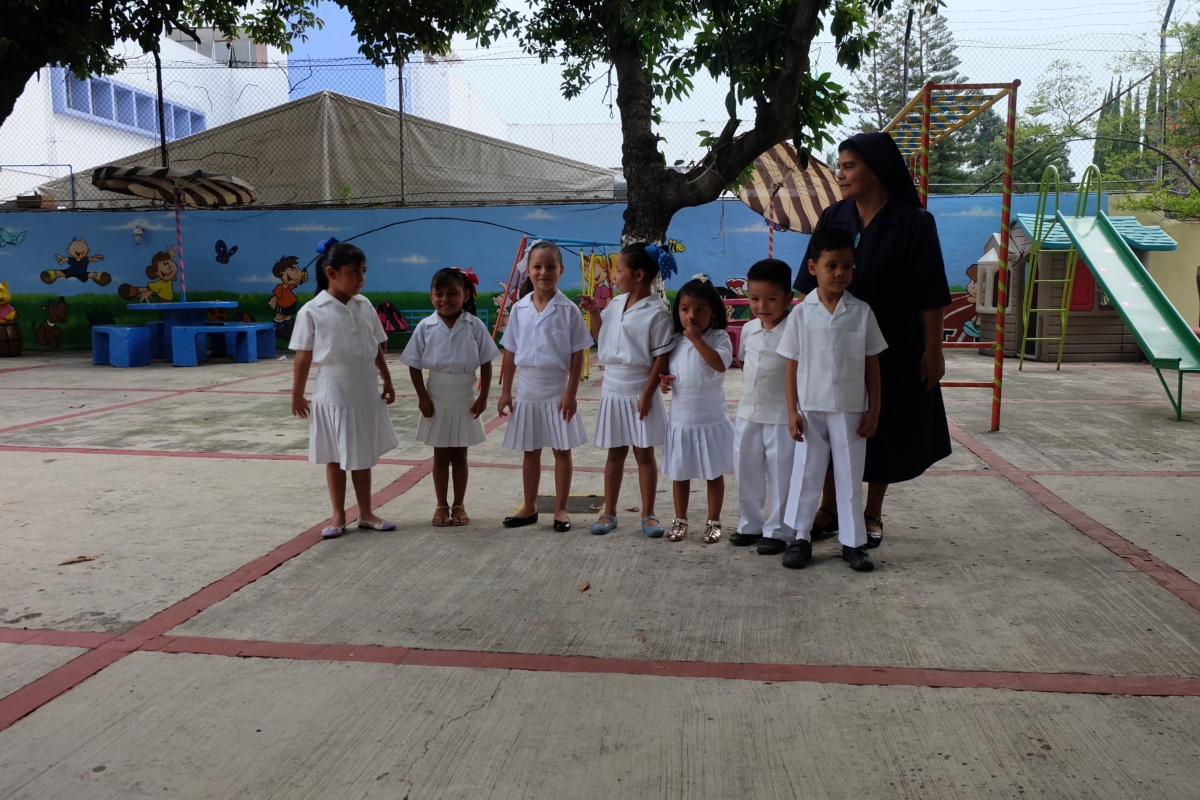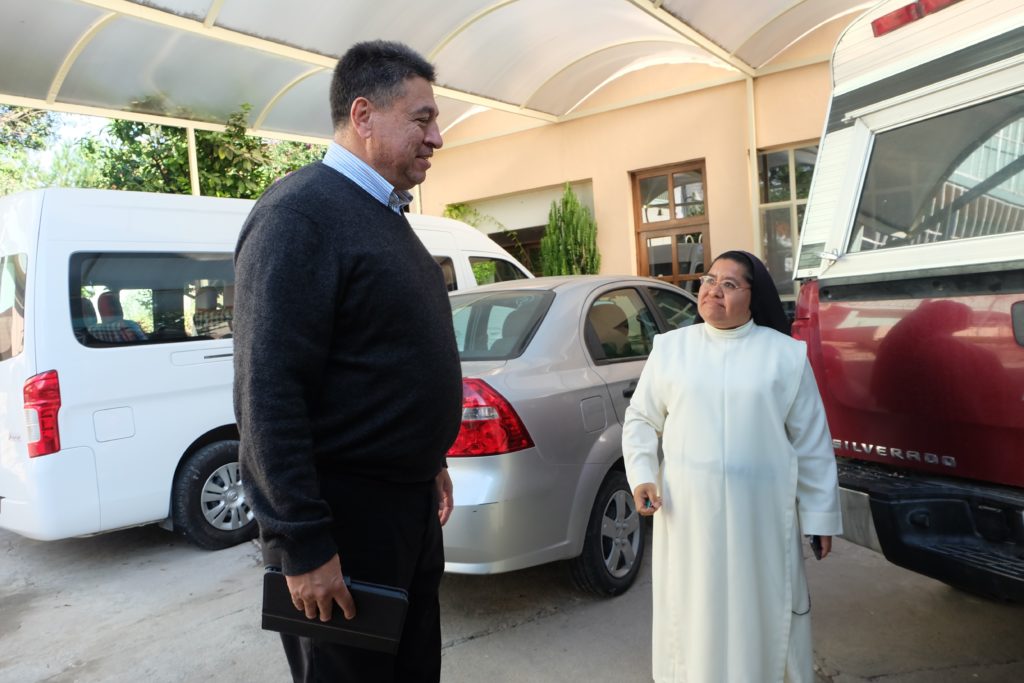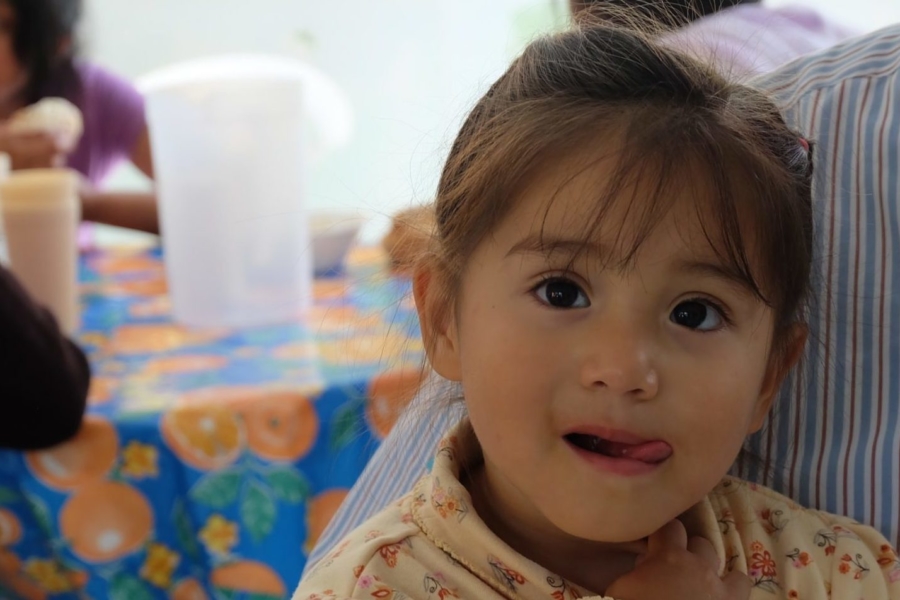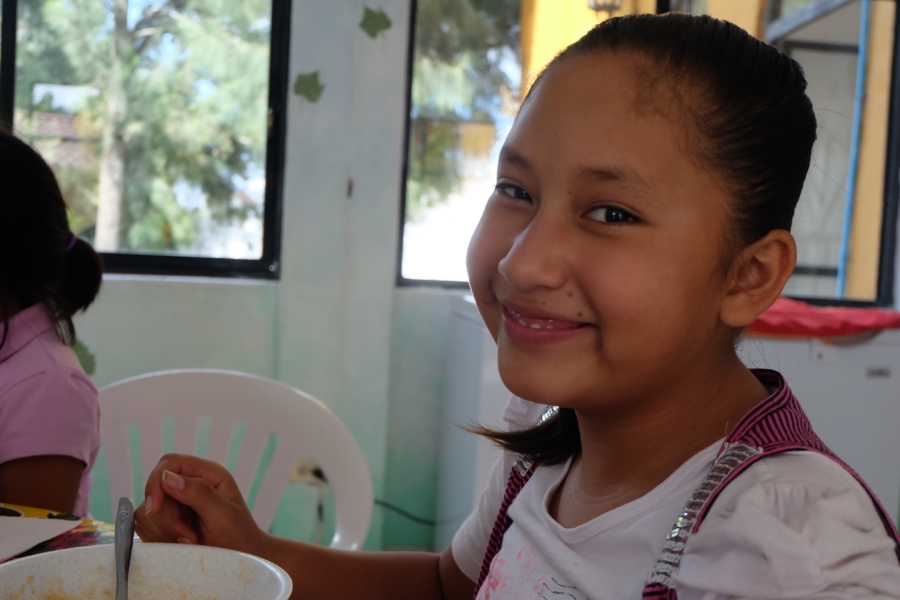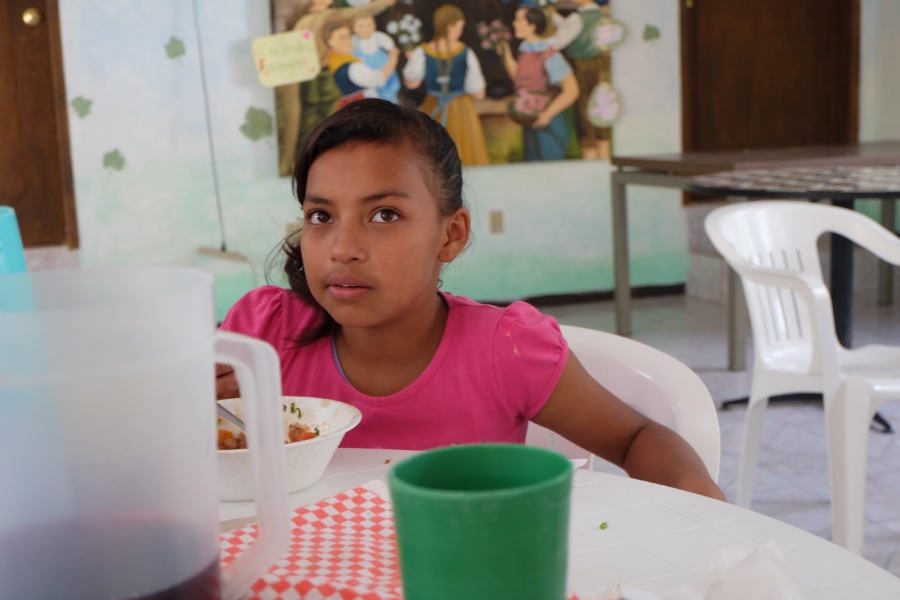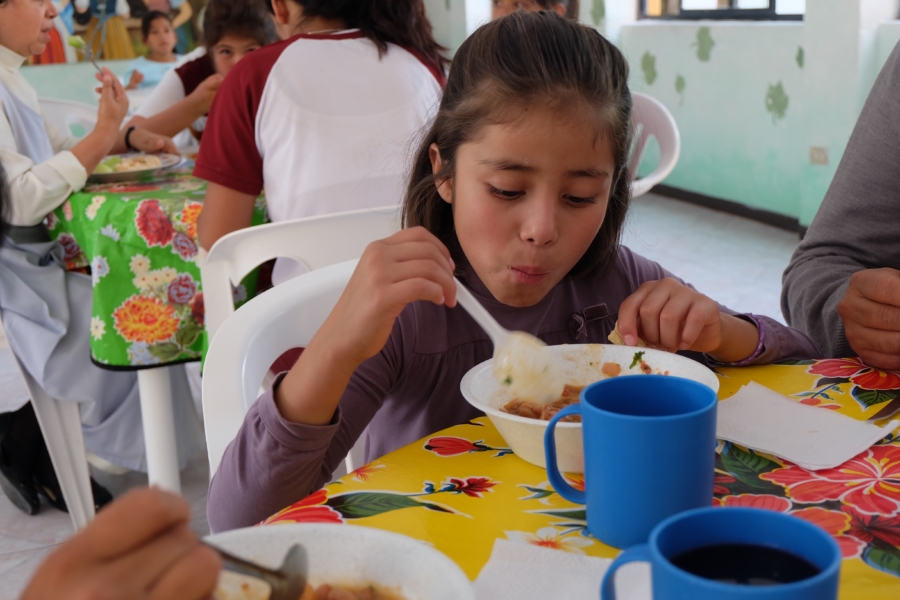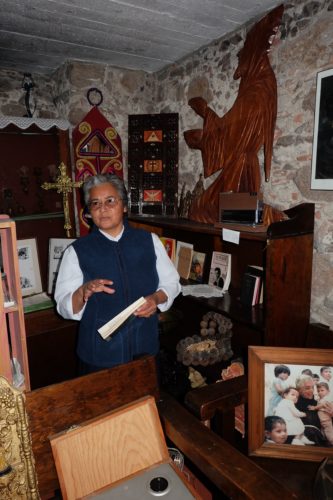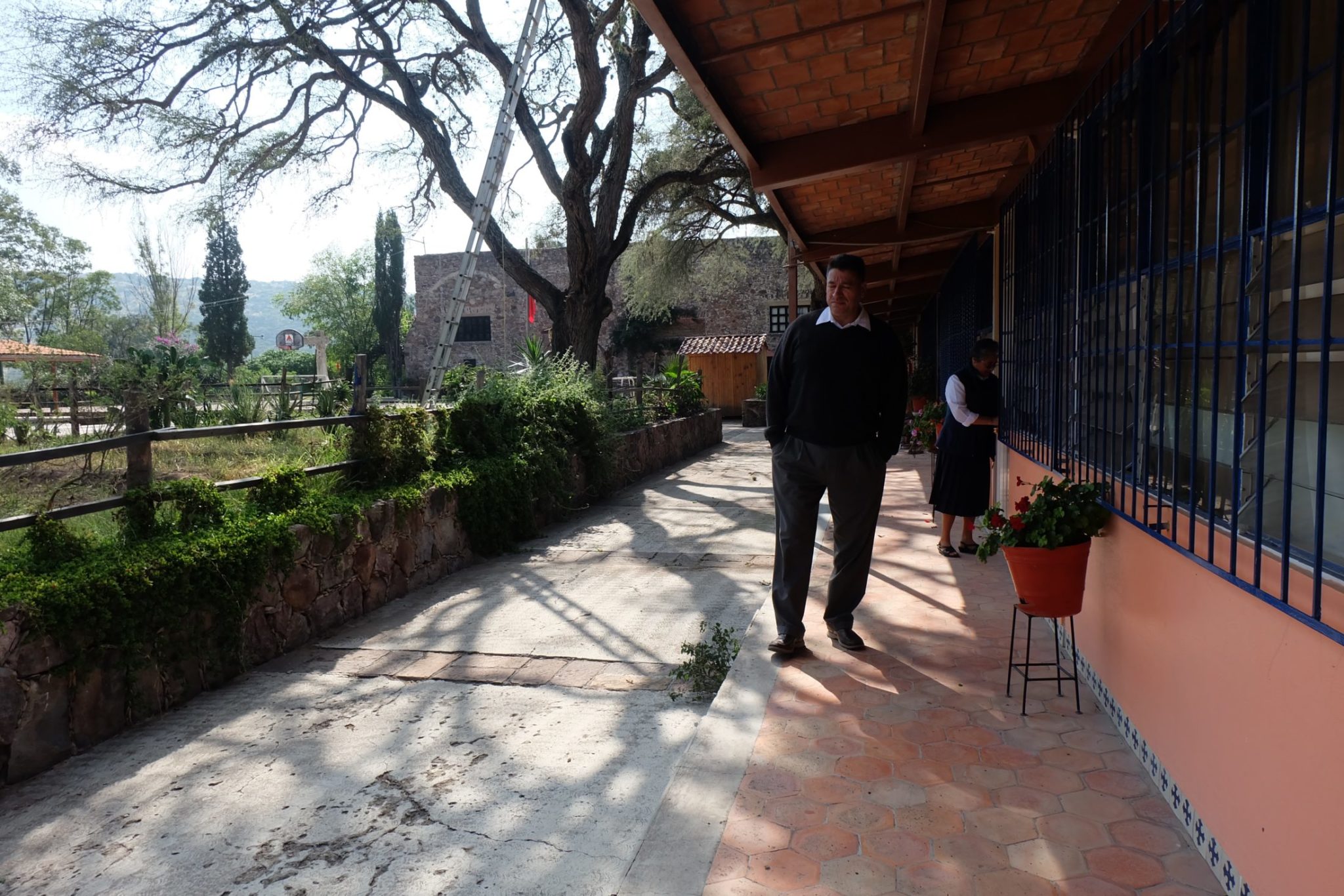If you travel around Mexico, as we have, you’re sure to notice that Monterrey feels a little different from the rest of the major Mexican cities. It may be wealth. After all, it’s the second wealthiest city in Mexico. But this capital of the state of Nuevo Leon is a distinctly more modern feeling. Its population of 1.1 million produces iron, steel, glass, furniture, automobiles, and electronic equipment amidst the Sierra Madre Mountains on all sides.
Here, the lower you stand on the income ladder, the higher up on the sides of the mountains you live.
I was so struck by the industrial-yet-contemporary feel of Monterrey when we arrived — it felt like the city had been prepared for its own growth spurt, with expansive highways and city roads that easily accommodated the traffic.
Above this, natural beauty drew my eye as I try to distinguish where the surrounding mountains ended and the sky began.
But despite its busy commercial face, Monterrey is also known for being home to thousands of Mexico’s unemployed and underemployed. As a result, families struggle, even in the middle of all this productivity.
Protecting the Vulnerability of Children
In 1970, Hogar Santa Maria opened with a mission to help the boys and girls of these struggling families, providing them with even the most basic of needs: food to eat, a bed to sleep in, and a safe place to do both. Despite being known as one of Mexico’s safest cities, Monterrey still carries a lot of danger for poor children left to fend for themselves during the day.
The home isn’t far from our hotel, but when we visit it, I see that it’s in a lower-income housing area. Here, the lower you stand on the income ladder, the higher up on the sides of the mountains you live. It’s cheaper there — fewer services are available, and no public transportation can get up the steep roads. The view from the houses is breathtaking, but within the neighborhoods is a less stunning view. Crime runs rampant here, with drug peddling and robberies pretty much status quo. Parents worry about their children becoming involved at a young age, as they so often do.
For three years, Sister Eloise has run Hogar Santa Maria with the help of a secretary and five other Sisters. Together, they provide what’s essentially daycare to twenty-five children, age six through twelve. All of the children go home on the weekends, and about a third of them sleep at home each night, with the Sisters making sure they get good meals and are en route to school at the right time.
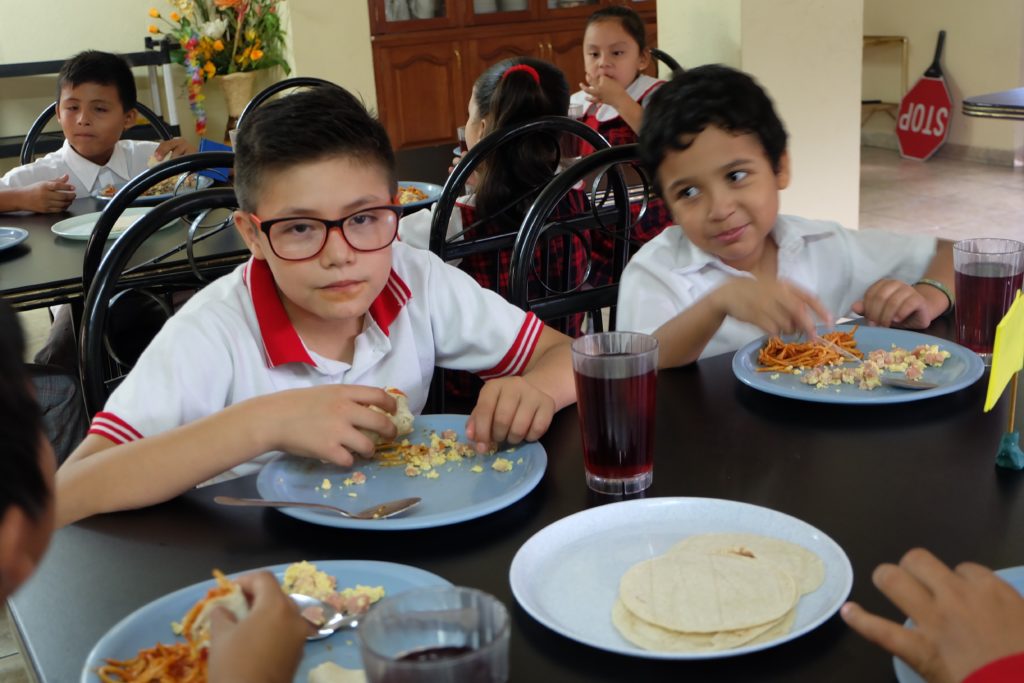
Sponsored children eating lunch during our visit
In addition to the six Sisters running the show, the place subsists on donations from community individuals. There’s no government aid here, and because the model revolves around getting the children ready for, headed to, and picked up from school, the capacity of area schools sometimes affects Hogar Santa Maria’s allowed enrollment numbers. Schools in this area essentially determine how many students the home can take. For instance, right now, the home looks after twenty-five students, though the program is designed to accommodate sixty.
Leave it to these always-resourceful nuns to find alternate ways to make money, though. They run a used clothing thrift store in an area far away from their charges. This way, the place doesn’t become a market, the kids remain protected, and Hogar Santa Maria can generate a little income. Volunteers from the community, as well as university students, assist the home in mentoring the boys and holding fundraisers. Children Incorporated sponsors fill the gap with food, medicine, and school supplies for the children at the home.
The children themselves almost embody Monterrey’s juxtaposition of poor and thriving. From the poorest houses, everyone’s treated to a panoramic view of this incredible city, but they still can’t find work. Meanwhile, Monterrey enthusiasts keep coming from Latin American countries or other Mexican states, having heard there was plenty of work for all who needed it but finding nothing at all suitable. Instead of a growing job market, then, the city just has a growing population of poor and uneducated. And in the middle of all this, Hogar Santa Maria keeps quietly running along.
Children Incorporated sponsors fill the gap with food, medicine, and school supplies for the children at the home.
Looking for Help to Keep Their Kids Safe
After visiting Santa Maria, the sisters take us on a newly home visit to Pedro’s house. Pedro lives with his mother, two older brothers, and his mother’s boyfriend in a small house with separate bedrooms and a kitchen. He lives at home with his family, but he is at Hogar Santa Maria on weekdays while his mother works to clean houses.
He’s home this week, though, having just had his appendix removed.
Sister Eloise and the social worker smile and chat with Pedro, who smiles back at them. His mother, meanwhile, tells me about how she worried about leaving her son home alone. She says she feels much more secure about Pedro’s safety now, knowing that Pedro is being cared for by the sisters at Hogar Santa Maria while she works to provide for the family.
The other home on our schedule this morning was a home devoid of children — at least at the time we were there. The grandmother was home alone in a house with three beds, a plastic kitchen table, a small couch, and a refrigerator. She told us that three children, three adults, and she all lived all together in one room. It seemed to me that this had to mean that all the children slept in one bed.
While the adults worked during the day (including the youngest child, who went to work with her mother), the older children traveled to school all on their own. Again, at this home, the family we met expressed great concern that the children would get into crime or drugs if left to their own devices. They count on Hogar Santa Maria to keep their children safe.
I wonder what exactly Hogar Santa Maria needs in order to enroll enough children to meet its full capacity — more money, surely, to buy food and supplies — but also to hire staff and teachers. I wonder if these families look down at the city below and wonder what it would feel like to have everything they need all the time, including the luxury of safety.
***
HOW DO I SPONSOR A CHILD IN MEXICO?
You can sponsor a child in Mexico in one of three ways – call our office and speak with one of our sponsorship specialists at 1-800-538-5381, email us at sponsorship@children-inc.org, or go online to our donation portal, create an account, and search for a child in Mexico that is available for sponsorship.

